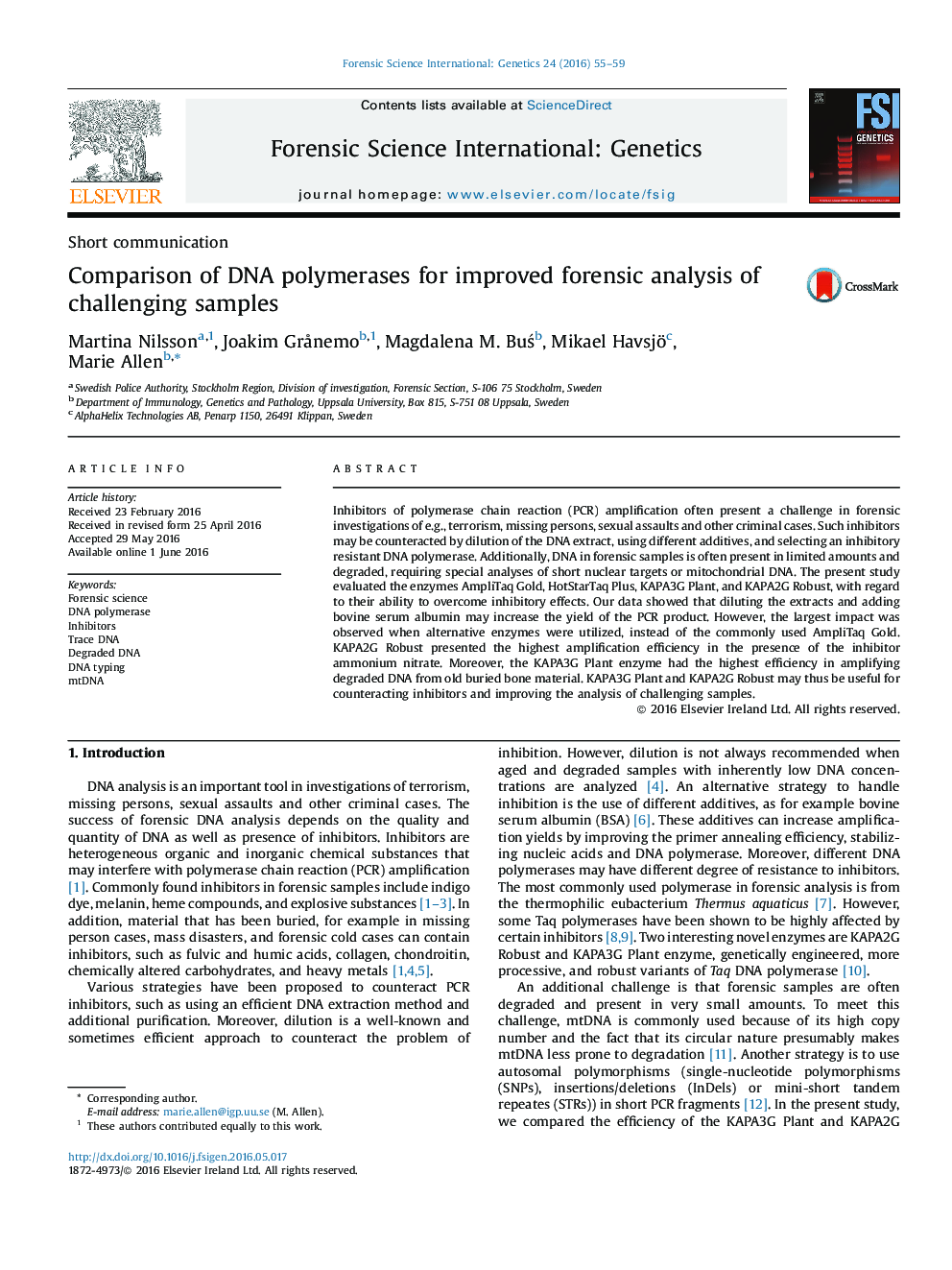| Article ID | Journal | Published Year | Pages | File Type |
|---|---|---|---|---|
| 6553521 | Forensic Science International: Genetics | 2016 | 5 Pages |
Abstract
Inhibitors of polymerase chain reaction (PCR) amplification often present a challenge in forensic investigations of e.g., terrorism, missing persons, sexual assaults and other criminal cases. Such inhibitors may be counteracted by dilution of the DNA extract, using different additives, and selecting an inhibitory resistant DNA polymerase. Additionally, DNA in forensic samples is often present in limited amounts and degraded, requiring special analyses of short nuclear targets or mitochondrial DNA. The present study evaluated the enzymes AmpliTaq Gold, HotStarTaq Plus, KAPA3G Plant, and KAPA2G Robust, with regard to their ability to overcome inhibitory effects. Our data showed that diluting the extracts and adding bovine serum albumin may increase the yield of the PCR product. However, the largest impact was observed when alternative enzymes were utilized, instead of the commonly used AmpliTaq Gold. KAPA2G Robust presented the highest amplification efficiency in the presence of the inhibitor ammonium nitrate. Moreover, the KAPA3G Plant enzyme had the highest efficiency in amplifying degraded DNA from old buried bone material. KAPA3G Plant and KAPA2G Robust may thus be useful for counteracting inhibitors and improving the analysis of challenging samples.
Related Topics
Life Sciences
Biochemistry, Genetics and Molecular Biology
Genetics
Authors
Martina Nilsson, Joakim GrÃ¥nemo, Magdalena M. BuÅ, Mikael Havsjö, Marie Allen,
